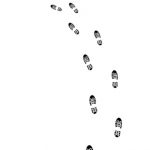
A new school year has begun. Do your students know what it means to be a nurse and the inherent responsibilities that come with being a member of the most trusted profession by the public?
A nurse educator cannot read a student’s mind but there is one thing you can do to determine student motives and hidden assumptions about nursing and their desire to be a nurse…
Ask the right question.
Reflection is a professional behavior that needs to begin on day one in your program. Regardless of where you may be with the teaching and development of your students, it is never too late to ask these seven questions to help students reflect and determine if nursing is a good fit for them and if they have what it takes to be a nurse!
What it Takes to Be a Nurse
Nursing is a challenging major that requires not only mastery of difficult content and be able to think like a nurse, but a student must also possess the values and virtues becoming of a healthcare professional.
Asking relevant open-ended questions of students at the onset of the program can provide insight into their internal motivations and values they possess.
In my student textbook Think Like a Nurse, I begin the book by asking 25 questions for students to reflect on and answer. To keep it simple I have pulled out seven reflection questions from the book that can help students determine if nursing is a good “fit” and identify weaknesses that can be made a strength by the time they graduate.
Here is my short list of questions to ask students to reflect:
- WHY do you want to be a nurse?
- What is your passion in life?
- Do you easily identify with the feelings of others?
- Do you enjoy and find fulfillment in serving others?
- Do you possess a strong work ethic?
- What are you willing to give up to make school a priority?
- How do you handle conflict with others?
Question #1: WHY do you want to be a nurse?
Encourage your students to dig deep and look within. Students know what the expected and “right” answer is…”because I want to care for others.” But is this true for them?
Encourage honest reflection. What gets you excited about nursing? The ability to care for others or making good money in a job that is recession proof, portable, with numerous opportunities for overtime?
Why is this important?
Studies have shown that the caring, patient-centered engagement of the nurse has a direct correlation to patient safety and better patient outcomes…motivation matters.
At the dawn of the modern era in 1900, influential nurse educator Isabel Hampton Robb (founder of the ANA, NLN, and AJN) wrote in her student text Nursing Ethics:
“The SPIRIT in which she does her work makes all the difference. Invested…with the cloak of love for suffering humanity, she can enoble anything her hand may be called upon to do. For work done in this SPIRIT there will ever come to her a recompense far outweighing that of silver and gold.”
This ethic is timeless and remains relevant today. Like the old Gatorade commercials with Michael Jordan, sweating brightly colored drops of sweat, nursing students need to reflect and determine, “Is it in you?”
Question #2: What is your PASSION in life?
I believe that we are created by God with talents and passions that are unique to who we are. I chose to enter nursing education because I realized that teaching was not just a job, but a personal passion and something I enjoyed doing.
One practical way to determine your passions in life is to ask yourself, “What would I be willing to do for free because I enjoy doing it?”
Christian author John Eldredge says it best in his book Wild at Heart:
“Don’t ask yourself what the world needs. Ask yourself what makes you come alive, and do that. Because what the world needs are people who have come fully alive” (Eldredge, 2001, p.200).
Doing what makes you come alive is consistent with your true passions in life.
Encourage honest reflection. Does caring for and serving others make you come fully alive? If so, nursing will be an excellent fit!
Question #3: Do you easily IDENTIFY with the feelings of others?
How students honestly answer this question is one of the strongest predictors if nursing is indeed a good “fit” for them.
Do your students identify and feel the pain and difficulties of others? Or are they aloof and indifferent? This is the essence of empathetic caring.
Caring is the essence of nursing practice and the most essential characteristic of a nurse (Leininger, 1988).
The essence of caring is that you recognize the value and worth of those you care for and that the patient and his or her experience MATTERS to you as a nurse (Benner & Wrubel, 1989).
Question #4: Do you enjoy and find fulfillment in SERVING others?
Though nursing is different than working in a service industry that depends on tips, the same principles of serving, making the patient (customer) the center of everything that you do and anticipating needs all translate to the essence of what it means to be a highly engaged nurse in practice.
The ability to serve must also be present regardless of how the patient may respond to you. This is why maintaining empathy is so vital to nursing.
Serving others is not highly valued in our culture, those who serve are the greatest of all, yet it is the essence of the attitude of the professional nurse and should be something students obtain satisfaction in doing.
Question #5: Do you possess a strong work ethic?
Nursing is hard work.
Being a student can be even harder at times.
To successfully complete nursing school, students must embrace the hard work required and do what is needed without taking shortcuts and comprise character by cheating in any way to get by.
Students must also not expect to be “spoon fed” in a lecture by being told what will be on the test or expecting a degree because they paid for it.
Active learning is hard work but essential to be successful as a professional nurse in practice.
Question #6: What are you willing to GIVE UP to make school a priority?
This is a very important question that needs to be asked upfront at the beginning of the program.
Are your students ready to make necessary short-term sacrifices for long-term gain? This is the mindset that will help students be successful while in nursing school.
Each student has 168 hours in a week. No more, no less. Something has to give. For some students, this dilemma is represented by the number of hours they work while in nursing school.
Have much time do students spend on Facebook, Twitter, YouTube or other avenues of social media. Have them keep track. They may be surprised and find that they are wasting precious hours that could be better spent on nursing school or needed quiet downtime!
Question #7: How do you handle conflict with others?
How students honestly respond to this question will strongly suggest if they will be part of the problem or part of the solution to bullying and incivility that remains endemic in nursing and nursing education.
If you have conflict and disagree with another person, do you still value and respect their perspective and seek to find common ground? Are you able to step back and view this conflict from the other’s perspective?
Or do you personalize this dispute as an attack on yourself and think negatively of this person and share your critical concerns with others to isolate and marginalize them?
This behavior is unprofessional and inconsistent of a professional nurse.
Encourage your students to commit to NEVER speak negatively about the nursing program, faculty, or other students to others and go directly to the source if there needs to be a resolution of conflict.
ACTION Steps
- Make it a priority to ask one or all of these questions at some point in the first semester of the nursing program to set the bar for what is needed to be successful as a professional nurse.
- I compiled a total of 25 student reflection questions in the first chapter of my student text, THINK Like a Nurse. Click the link for more information and how you can obtain a faculty preview eBook copy.
In Closing
Motivation matters. Use these seven reflection questions to help students see the big picture and what it means to embody the values of the professional nurse.
Reflection is a professional behavior that is required of the professional nurse.
This reflection is required not only while performing patient care to strengthen clinical decision making (Tanner, 2006), but also when examining the motivation to become a professional nurse.
Encourage your students to reflect on these questions at the BEGINNING of their journey in nursing education so that they have their eyes wide open going into nursing school and will be successful knowing that they have what it takes to be successful as a professional nurse!
Comment Question:
How have you helped your students reflect to help them grow as a healthcare professional?
Comment below and let the conversation begin!
RELEVANT Past Blogs
Learn more! The following past blogs provide additional background on today’s topic!
- It’s All About the Patient: An Open Letter to Nursing Students
- How a Nurse Makes a Difference
- What Successful Nursing Students Have in Common
References
- Benner, P. & Wrubel, J. (1989). Primacy of caring: Stress and coping in health and illness. Menlo Park, CA: Addison-Wesley Publishing Company.
- Eldredge, J. (2001). Wild at heart: Discovering the secret of a man’s soul. Nashville, TN: Thomas Nelson
- Hampton Robb, E. (1900). Nursing ethics. Cleveland, OH: E.C. Koeckert.
- Leininger, M. (1988). Leininger’s theory of nursing: Cultural care diversity and university. Nursing Science Quarterly, 1, 152–160.
- Tanner, C. A. (2006). Thinking like a nurse: A research-based model of clinical judgment in nursing. Journal of Nursing Education, 45(6), 204–211.
Keith Rischer – PhD, RN, CEN
As a nurse with over 35 years of experience who remained in practice as an educator, I’ve witnessed the gap between how nursing is taught and how it is practiced, and I decided to do something about it! Read more…
The Ultimate Solution to Develop Clinical Judgment Skills
KeithRN’s Think Like a Nurse Membership
Access exclusive active learning resources for faculty and students, including KeithRN Case Studies, making it your go-to resource.




